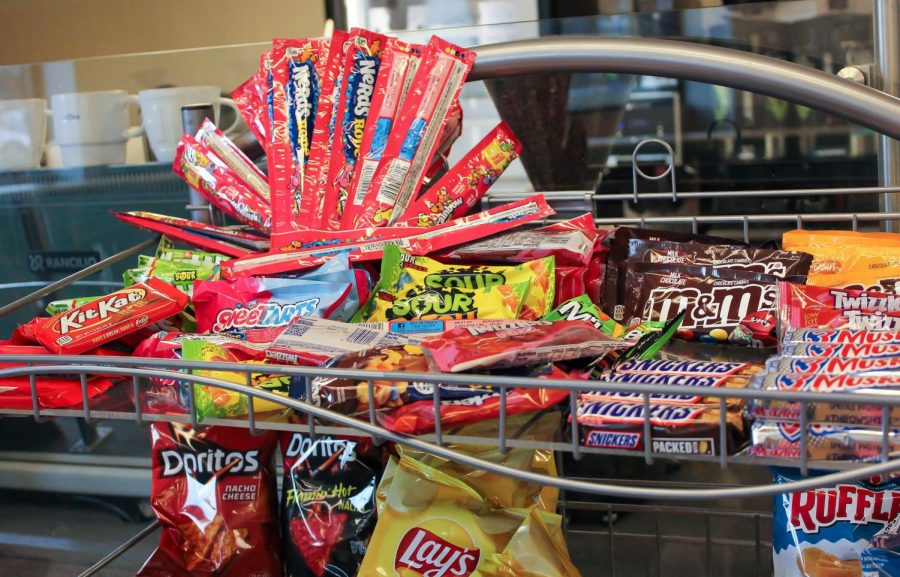Cafeteria, school curb losses from lunch period thefts
Some try skipping lines without paying
Meyer
for years, the school has dealt with cafeteria theft, with losses estimated to be $150 to $250 per person
In the span of 3 blocks, the school cafeteria sees roughly 4,000 students pass through its doors. The sheer number of people buying lunch often creates clogged lines, motivating some students to skip the lines and take their food without paying for it.
Cafeteria theft is an issue the school has dealt with for years, with estimated losses of $150 to $250 per person caught.
According to an anonymous student, who has not been caught stealing, getting away with it is easier than people think.
“I just take what I want, and I walk away,” they said. “Sometimes I hide it under my hoodie.”
The student said they know others who also haven’t been caught.
“I’ve seen like seven people stealing,” they said.
The student said that motivations for stealing range from not having enough money in accounts to lines being too long.
This type of theft, however, isn’t as common as some may think it is. Kinetic wellness teacher Andrew Milne, who also serves as a cafeteria supervisor for a block on blue days, said that he’s seen two thefts this year so far.
According to Dennis Karim, the manager of Quest Food at New Trier, in recent years thefts have gone down due to both efforts from the school and cafeteria staff.
“It’s definitely gotten better,” Karim said. “In part, I think it’s due to the presence of security guards and the increased efficiency of our cashier lines.”
Sophomore advisor chair Theodore Koulentes is working with Quest Foods and school security to mitigate theft. He said that in addition to security guards, there are cameras on every line.
“So once we have a suspicion, we can pretty easily find who did what, and talk to that student specifically,” he said.
Koulentes said five students have been brought in for cafeteria theft this year, so far.
When it comes to motivations for stealing, the frustration with the lines is something that Koulentes has heard before.
“We usually ask the students who have been caught, ‘Why?’ just to know their side,” he said. “Most of the time, it’s that the lines were too long.”
Karim and Koulentes both agree that the lines can get too long. Quest has been working to mitigate this issue by introducing more cashiers and using ID scanners instead of manually typing out ID numbers.
Milne and Koulentes each have their own protocol for dealing with students who are caught stealing. Milne prefers speaking to the student after catching them.
“Typically I invite another teacher over so there’s a witness,” he said. “[I] take that student’s details, and then report it.”
Once an adviser chair is notified, the student is brought into their office. Koulentes said that in these cases, there is always a call home followed by disciplinary action.
The school’s response can depend on whether a student has been caught in the act or not.
“Often if they are caught in the act, the security guard will make them pay right there, then bring them up here, where they’ll get consequences,” Koulentes said.
If a security guard or advisor chair catches a student through video surveillance, and not in the act, the student will pay for all the items they’ve taken.
“If they’ve been stealing for a long time, we’ll try and figure out what they’ve taken and make them pay restitution as well as the disciplinary consequences for stealing,” Koulentes said.
Koulentes and Karim said these efforts have been paying off. Neither are seeing high numbers of thefts.
“Of course, we want to be in a community where we don’t want to worry about theft,” Koulentes said. “I just don’t think students recognize the impact that things like theft have on the cafeteria, and how that ultimately trickles down to affect them.”






































